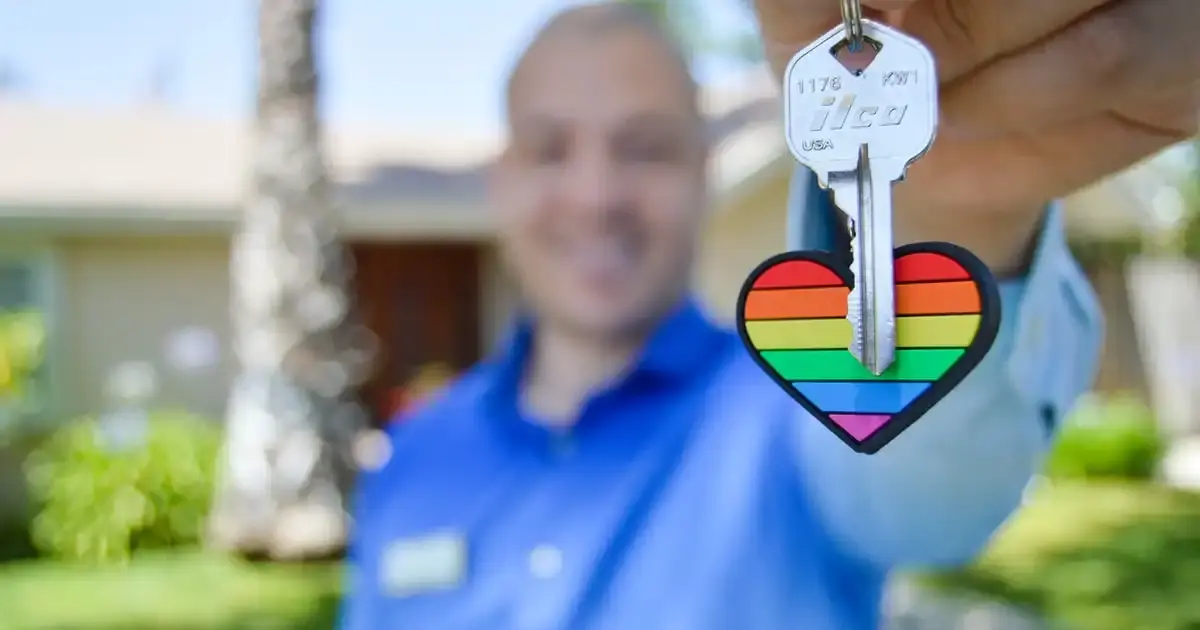
How to be a great landlord
Being a landlord is more than just owning property—it's about providing a comfortable home for your tenants and maintaining a profitable investment. A well-managed property not only keeps tenants happy but also enhances your reputation, attracting quality renters. Here are some essential tips to help you excel as a landlord and ensure your rental property thrives.
1. Maintain Your Property to High Standards
The foundation of good landlordship is a well-maintained property. Tenants expect to move into a clean, safe, and functional home. Here's how to meet and exceed their expectations:
Regular Maintenance: Conduct routine inspections and address issues promptly. This includes repairing appliances, fixing leaks, and updating worn-out fixtures.
Cleanliness: Ensure the property is thoroughly cleaned before new tenants move in. A tidy environment sets the standard for how tenants should care for the space.
Curb Appeal: Keep the exterior well-maintained by mowing lawns, tending gardens, and keeping common areas free of debris. A welcoming exterior makes a positive first impression.
By providing a well-kept property, you show tenants that you care about their living conditions, encouraging them to respect and maintain the property as well.
2. Understand Your Role as a Landlord
As a landlord, your responsibilities extend beyond collecting rent. Key duties include:
Property Maintenance: Ensure all aspects of the property are in good working order.
Tenant Satisfaction: Provide necessary amenities and respond promptly to tenant needs.
Legal Compliance: Adhere to all local laws and regulations regarding rental properties.
Being proactive in these areas helps build strong landlord-tenant relationships and establishes you as a reputable property owner in the community.
3. Prepare Before Accepting Tenants
Before welcoming new tenants, take these steps to protect your investment:
Property Condition: Ensure the property is in excellent condition with all repairs completed.
Documentation: Have all necessary paperwork ready, including lease agreements and disclosure forms.
Screening Process: Conduct thorough background and credit checks to assess potential tenants' reliability.
A careful screening process helps you find responsible tenants who are likely to pay rent on time and take care of your property.
Importance of Credit Scores
A tenant's credit score offers insight into their financial responsibility. High credit scores generally indicate timely bill payments, while low scores may signal potential issues with rent payments. Use credit checks as part of your screening to select reliable tenants.
4. Clearly Define Lease Terms
The lease agreement is a crucial document that outlines the rights and responsibilities of both landlord and tenant. Ensure it includes:
Rules and Regulations: Clearly state what is and isn't allowed on the property.
Maintenance Responsibilities: Define who is responsible for specific upkeep tasks.
Payment Terms: Specify rent amount, due dates, and acceptable payment methods.
A well-drafted lease prevents misunderstandings and provides legal protection in case of disputes.
5. Be Proactive with Problem Tenants
Even with careful screening, issues may arise. If you encounter a problematic tenant:
Address Issues Promptly: Communicate with the tenant to resolve minor issues before they escalate.
Document Everything: Keep records of all communications and incidents.
Know Your Legal Rights: Familiarize yourself with landlord-tenant laws to take appropriate action if necessary.
Handling problems professionally helps maintain order and protects your property.
6. Provide Desirable Amenities
Offering amenities can make your property more attractive to potential tenants. Consider features such as:
On-Site Laundry Facilities
Secure Parking
Recreational Areas (e.g., pool, gym, or basketball court)
Pet-Friendly Options
Adding value to your property can justify higher rent prices and increase tenant satisfaction.
7. Be Accessible and Responsive
Being available to your tenants builds trust and encourages open communication. Ensure you:
Provide Contact Information: Give tenants an easy way to reach you or a property manager.
Respond Promptly: Address inquiries and maintenance requests in a timely manner.
Conduct Regular Check-Ins: Periodically touch base with tenants to ensure their needs are met.
A responsive landlord fosters positive relationships and tenant retention.
8. Engage with the Community
Active participation in the local community enhances your reputation and can lead to more referrals. Ways to engage include:
Attending Community Events
Supporting Local Businesses
Joining Landlord Associations
A good reputation makes your property more appealing to prospective tenants.
9. Plan for Property Sale or Transition
If you decide to sell your property:
Notify Tenants: Inform them of your plans well in advance.
Assist with Transition: Help tenants understand any changes that may occur.
Find Qualified Buyers: Market your property to buyers who value maintaining tenant relationships.
Handling the sale professionally ensures a smooth transition for all parties involved.
10. Continuously Improve as a Landlord
Being a landlord is an ongoing learning process. Strive to:
Stay Informed: Keep up-to-date with changes in landlord-tenant laws and property management best practices.
Seek Feedback: Ask tenants for their input on how you can improve.
Invest in Education: Consider property management courses or workshops.
Continuous improvement benefits your business and enhances tenant satisfaction.
Conclusion
Becoming a successful landlord requires dedication, organization, and a commitment to providing excellent service. By maintaining your property, fostering positive tenant relationships, and engaging with the community, you'll not only protect your investment but also create a welcoming environment that tenants are happy to call home.
For more information on what it means to be a good landlord or how to get started investing in rental property, please visit our blog page for additional tips and resources.
Latest articles
Learn more about property management on our blog.

5 Best Tips for Planning Your Property Management Budget
Are you a landlord or property manager who wishes budgeting would just be easier?

10 Proven Strategies to Grow Your Property Management Business
Growing your property management business takes more than marketing

What is the Role of a Property Manager?
The first thing you need to do if you want to be a good landlord is to make sure the property is well-maintained.
